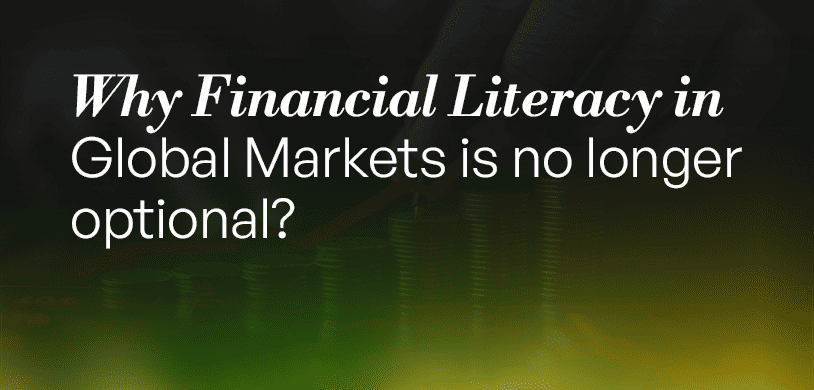Why Financial Literacy in Global Markets is no longer optional?
In today’s world, survival increasingly depends not just on earning but on understanding money — how it moves, grows, and shrinks in value. The old roadmap of getting a degree, landing a job, and saving for retirement is no longer enough. The job market is shrinking in predictability, inflation is rising beyond historical norms, and the value of your paycheck is losing its purchasing power every year.
According to the International Labour Organization, global unemployment in 2024 stood at 5.2%, with underemployment and informal job rates even higher in many developing economies. Meanwhile, inflation has remained stubbornly high in countries like the U.S. (3.5% in early 2025), the UK (3.5%), and even higher in emerging economies like Argentina or Turkey. In India, retail inflation has hovered between 5-6%, stretching household budgets tighter than ever before.
What this means for the average person is simple: your job is not as secure as you think, and your money is not stretching as far as it used to.
In such a climate, depending solely on a single income source — particularly a salary — is a financial risk. Upskilling is no longer a professional advantage; it's a survival strategy. And in that context, understanding global financial markets isn’t just for bankers and hedge fund managers anymore — it’s for everyone.
How Global Markets Quietly Influence Your Daily Life
Global financial markets — including currencies, commodities, indices, and cryptocurrencies — shape the cost of your food, fuel, rent, and even your EMIs. Crude oil price swings affect your transport costs. Currency fluctuations impact the price of imported goods. Interest rate decisions by the U.S. Federal Reserve ripple into Indian stock markets and home loan rates. Even if you never plan to become a full-time trader, having a solid grip on these macroeconomic levers equips you to make smarter life decisions — from when to refinance a loan to where to invest your savings and even which type of insurance policy to choose. For instance, knowing when inflation is rising or interest rates are peaking can help you decide whether to opt for a market-linked insurance plan (like ULIPs) or a traditional non-market-linked plan. Market-linked plans can be more beneficial when markets are poised for long-term growth or when interest rates are high but expected to decline, allowing you to lock in gains early.
Furthermore, we're witnessing a major shift in employment patterns. The freelance and gig economies are growing, but not always with stable incomes. In contrast, global trading — particularly when approached with proper education and practice — has become a viable avenue for parallel income. It’s not passive, and it’s definitely not easy. But it’s accessible with the right mindset and learning path.
Financial Ignorance Is the Real Risk Today
The challenge? Financial education in schools and universities remains shockingly outdated. Most curriculums do not teach how to interpret inflation data, analyze a central bank policy move, or evaluate an ETF. This leaves even highly educated professionals vulnerable to financial missteps — overleveraged investments, poor timing, or blind reliance on social media tips.
This is why more individuals — from students and working professionals to homemakers — are beginning to explore structured learning in global markets. Not to get rich overnight, but to become financially literate in a world where ignorance is costly.
We live in an era where knowing global finance is no longer optional — it’s a form of economic self-defense.
The question isn’t whether you should learn about global markets.
It’s whether you can afford not to.








